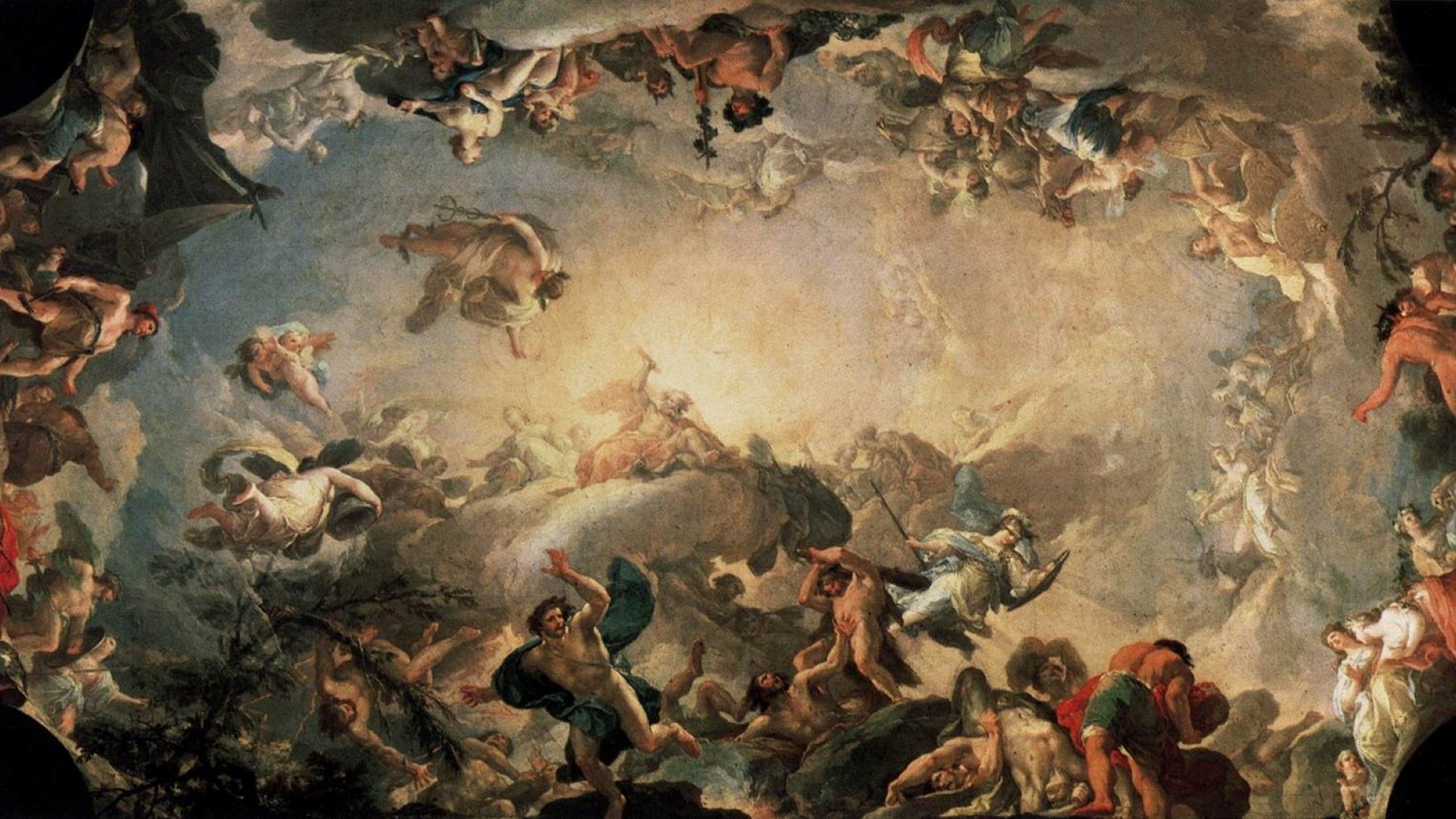
Dardanus
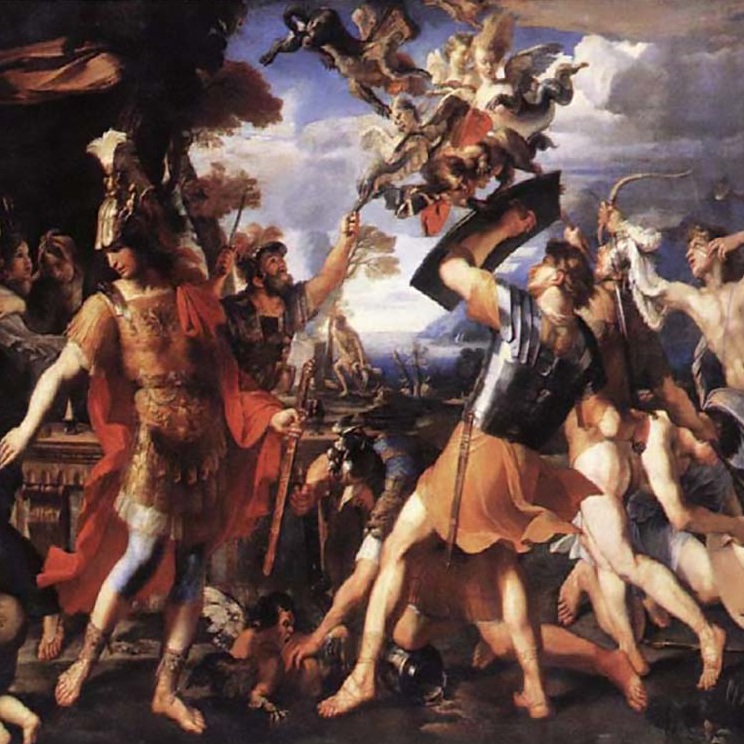
In Greek mythology, Dardanus (Ancient Greek: Δάρδανος) was a son of Zeus and Electra (daughter of Atlas) and founder of the city of Dardanus at the foot of Mount Ida in the Troad.
MYTHOLOGY
Dardanus was a founding king of Greek mythology, a king of Arcadia before the Great Flood, and the man who would subsequently settle in the Troad (the Biga peninsula).
THE DELUGE IN GREEK MYTHOLOGY
The main flood myth in Greek mythology has Deucalion and Pyrrha as the only survivors of the Deluge, and the couple who would bring forth the race of man when they threw stones over their shoulders.
Other stories though also exist which tell of other survivors, including Dardanus, and so to reconcile the myths, Deucalion and Pyrrha were then associated with mainland Greece, whilst other individuals were linked with other regions of the Ancient World.
KING DARDANUS IN ARCADIA
The Deluge, or Great Flood, was sent by Zeus to rid the earth of the impious and quarrelsome generation of man that now inhabited it. At the time Dardanus, alongside his elder brother Iasion, were kings of Arcadia.
Dardanus and Iasion were sons of Zeus and the Pleiad Electra, thus grandsons of the Titan Atlas, the first king of Arcadia in some mythological tales. Some ancient writers would also state that Harmonia was a sister of Dardanus.
Dardanus would marry Chryse, the daughter of Pallas, and grand-daughter of King Lycaon. Some say that Chryse brought with her the famous Palladium as part of her dowry, although this is just one version of the myth. Dardanus and Chryse would have two sons, Idaeus and Deimas.
When the Great Flood came, the surviving Arcadians retreated to the mountains, and Dardanus and Iasion decided to build a boat and set sail upon the flood waters. Whilst Idaeus decided to go with his father, Deimas remained behind, and would become king of those who stayed. There is no mention of Chryse, and the supposition is that by this time she had died.
DARDANUS ON SAMOTHRACE
The boat, with Dardanus and his followers on would set sail. The boat would first come to rest upon the island of Samothrace, and island that at one time, according to Pausanias, was known as Dardania.
The stay at Samothrace was not a happy one though, for Dardanus considered the land of poor quality, and it was also on Samothrace that Dardanus lost his brother Iasion.
Some stories tell that Dardanus and Iasion were invited to the wedding of Cadmus and Harmonia (although the timeline of events does get confusing at this point). During the wedding feast, the goddess Demeter took a fancy to Iasion, and whisked him away to have her wicked way with him. When the pair returned to the feast, Zeus instantly knew what had gone on between the pair, and in an act of jealousy, killed Iasion with a thunderbolt.
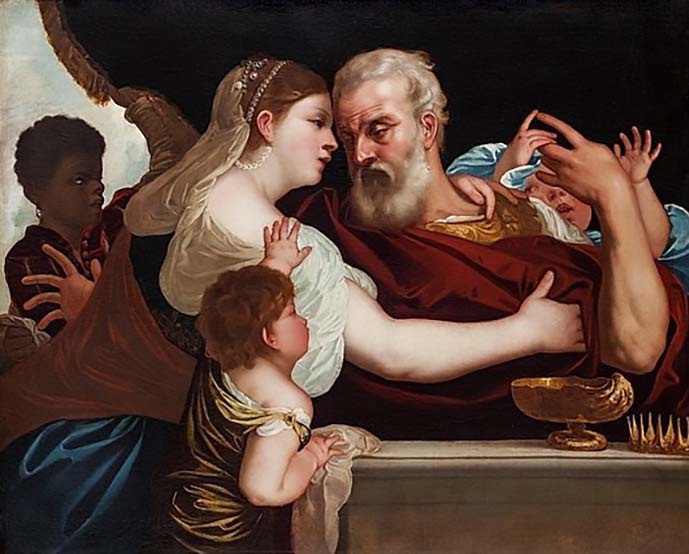
DARDANUS IN ASIA MINOR
Dardanus and Idaeus would leave Samothrace and arrived in Asia Minor near to the city of Abydos. The newcomers were welcomed to the land by King Teucer, and so enamoured with Dardanus was Teucer that he gave his daughter Batea in marriage. Teucer would then give to Dardanus land from his kingdom.
At the foot of the Idaean Mountains (Mount Ida), named for Idaeus, Dardanus would build a new settlement, a city named for himself. The new settlement prospered, and Dardanus set about expanding his territory waging war against his neighbours, and creating a wider area known as Dardania.
Dardanus and Batea would become parents to a number of children; a son Ilus, who died young, a daughter Idaea, who would become a wife of Phineus, another son Zacynthus, who was the first to settle upon the island of Zacynthos, and a heir to Dardanus, Erichthonius (Dardanus reigned for 64 or 65 years and was succeeded by his son Erichthonius).
Via Erichthonius, Dardanus would become ancestor to many of the most famous individuals of the Troad, including Tros, Ganymede, Laomadon and Priam.
The name of Dardanus lives on today for the Dardenelles are named after the mythological king. The narrow straits separating Asia and Europe were once known as Hellespont, a name which is also linked to Greek mythology, for Helle fell whilst riding the Golden Ram to Colchis.
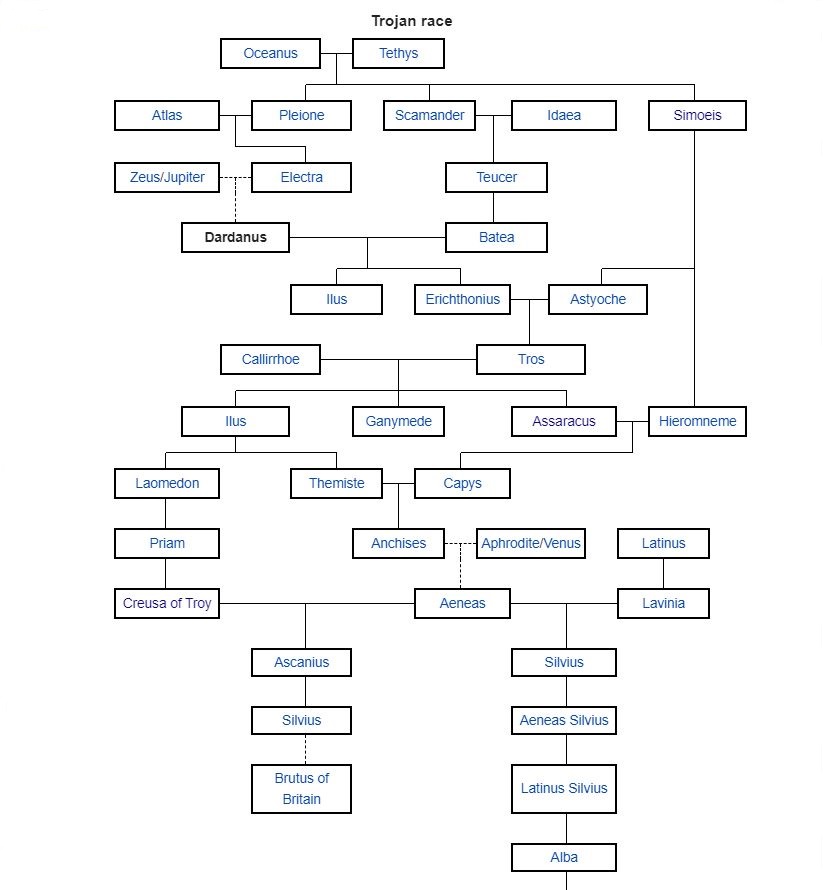
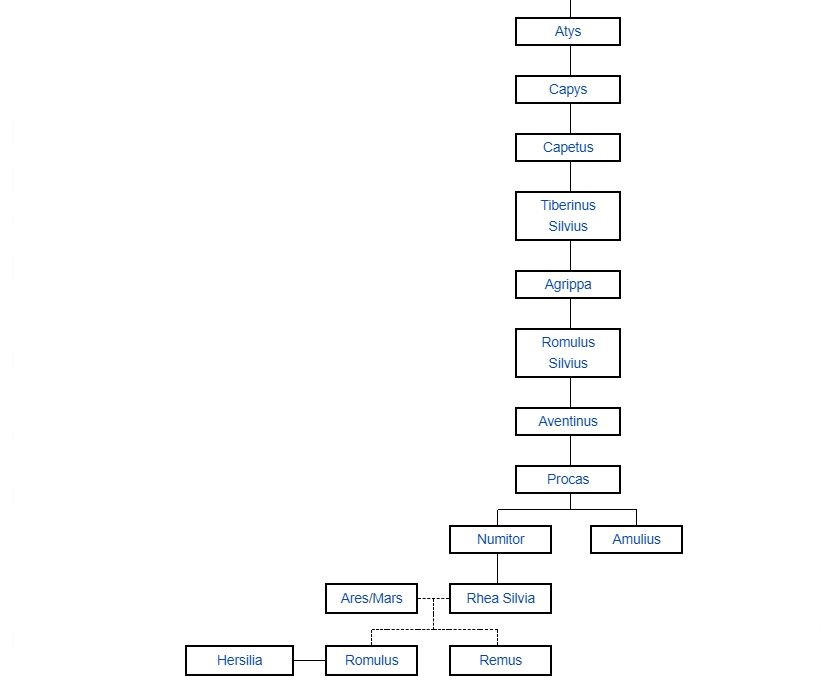
THE HOUSE OF DARDANUS IN GREEK MYTHOLOGY
The city of Troy is one of the most famous cities from Greek mythology; after all it is central to the myths surrounding the Trojan War.
The city of Troy though was only a short-lived city, lasting but three generations of the House of Troy, although the Trojan people predated the founding of Troy, and continued after its destruction.
DARDANUS AND THE BEGINNING
The history of the House of Troy and the Trojan people can be said to start with the arrival of Dardanus in Anatolia; Dardanus having left Arcadia during the Great Flood.
Dardanus was welcomed by King Teucer, a son of the Potamoi Scamander and the Naiad Idaea. Being the first king of the region later named the Troad, Teucer is often called the first king of Troy.
Teucer would give Dardanus land within his realm, and also the hand in marriage of his daughter Batea. Dardanus would build a new city at the foot of Mount Ida, a city that would be called Dardania.
With the death of his father-in-law, and also military conquest of his neighbours, Dardanus greatly expanded Dardania, making it comparable to any of the Phrygian kingdoms to the east.
Dardanus would be father to two, or four, children with Batea. The two less often children mentioned were Idaea, the future wife of Phineas, and Zacynthus, the first settler upon the island of Zacynthos. The two more famous members of the royal line were the eldest son Ilus, and second son, Erichthonius.
Ilus would predecease his father, and so upon the death of Dardanus, Erichthonius became king of Dardania.
Erichthonius was considered the wealthiest king of his day, and by the Naiad Astyoche, would father a son and heir, Tros.
As the third king of Dardania, Tros would give his name to his subjects, and so whilst still referred to as Dardanians, the term Trojans also started to be used.
THE TROJANS SPLIT
Tros would father three sons by Callirhoe, Ilus, Assaracus, and Ganymede. Ganymede is of course a famous figure from Greek mythology, for this Trojan prince was abducted by Zeus, and taken to Mount Olympus.
Ilus was the heir to the throne of Dardania, but before his father died, Ilus founded a new city of Ilium (Ilion). Later, the city would be renamed in honour of Ilus’ father Tros, just as the Troad was also named for the third king of Dardania.
When Tros died, Ilus did not take up the position of king of Dardania, instead he was satisfied with being the first King of the city of Troy, thus Assarcus became the fourth king of Dardania. Thus the Trojan people were now split into two.
THE CITY OF DARDANIA
Dardania would become the junior city subsequently, although still a noted city within Anatolia. Assaracus would marry Hieromneme, and this marriage would bring forth one son, Capys.
The rule of Assaracus was uneventful, but it was in the time of Capys when the Trojan War took place. Capys’ son Anchises was present in Troy during the war, but more famously Anchises’ son, and therefore Capys’ grandson was also present, and this prince of Dardania was Aeneas.
THE CITY OF TROY
The city of Troy would become the dominant city of the Trojans, and Laomedon would become king of Troy upon the death of his father.
Laomedon would be responsible for building up the city walls of Troy, having employed Poseidon to do the job, but the foolishness of the king of Troy would lead to his reign being cut short. Laomedon would refuse to pay Poseidon and Apollo for the work they had done for him, and the king would then refuse to pay Heracles when the Greek hero killed the monster sent by Poseidon.
Heracles would sack Troy, killing Laomedon and his numerous children; only one son of Laomedon survived the onslaught of the demi-god, and that was Priam, who was ransomed by his sister Hermione.
Heracles placed Priam on the throne of Troy, making him the third king of Troy, and the city once again flourished just as it had done under Ilus.
The children of King Priam were numerous, and it seemed that the House of Troy was firmly established for the heir to the throne was the courageous Hector.
Another son of Priam, Paris, though would bring disaster upon Troy just as had been foretold at his birth, for he abducted Helen bringing forth a thousand ships; and during the war son after son of King Priam would die.
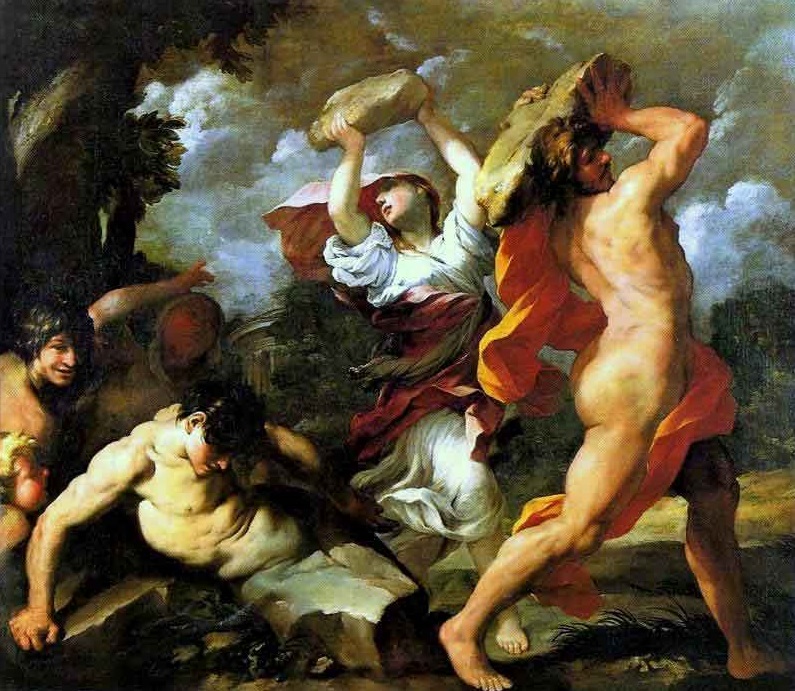
THE HOUSE OF DARDANUS CONTINUES
King Priam is normally described as the last King of Troy, and indeed the city was destroyed so there was no more Troy to rule.
At least one son of Priam survived the war, as did several daughters, thus the House of Troy continued; indeed Helenus would found the city of Buthrotum, before the son of Priam succeeded Neoptolemus as the ruler of Epirus.
Dardania also survived, although greatly weakened, and so it was subsequently swamped by Phrygian kingdoms. The most famous son of Dardania though survived the destruction of Troy, and after many adventures, Aeneas would arrive in Italy. Aeneas is of course one of the cornerstones of Roman mythology, and the surviving Trojans would become the ancestors of the Romans.
THE NAME DARDANUS IN GREEK MYTHOLOGY
In Greek mythology, Dardanus is the name attributed to three distinct individuals:
Dardanus, son of Zeus and Electra, and founder of the city of Dardania, of the tribe of Dardans.
Dardanus, a Scythian king, and the father of Idaea, the wife of King Phineus.
Dardanus, son of Bias, son of Priam. He was killed by Achilles.
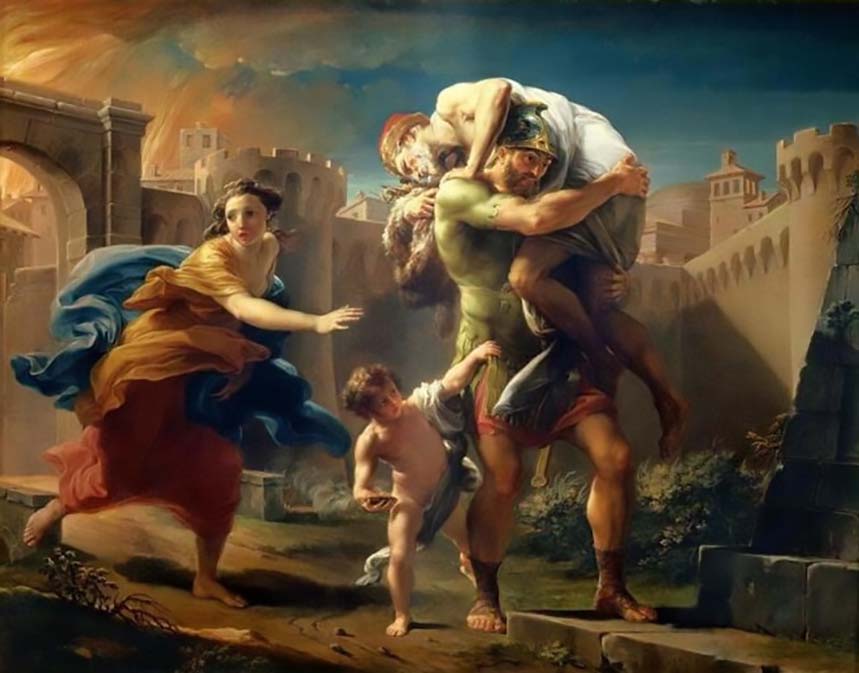
Sources
Graves, Robert. The Greek Myths, ISBN 0-14-017199-1, p.358
Aeneid 7.195-242; 8. 596 ss.; 9. 10; Servio, ad Vergilium, Aeneidos, 9.10
Pausanias, Graeciae Descriptio 8.24.3
Dionysius of Halicarnassus, Antiquitates Romanae 1.50.3.
Dictys Cretensis, Trojan War Chronicle 3.5 & 4.22
Pseudo-Apollodorus. Bibliotheca, 3.12.1-2
Diodorus Siculus, 4.43.3–4, 4.44.3–4; Apollodorus, 3.15.3.
Homer. Iliad, 20.460ff.
"Wikipedia"
"Greek Legends and Myths"
Our Mobile Application
Check out Our Mobile Application "Ancient Greece Reloaded"


